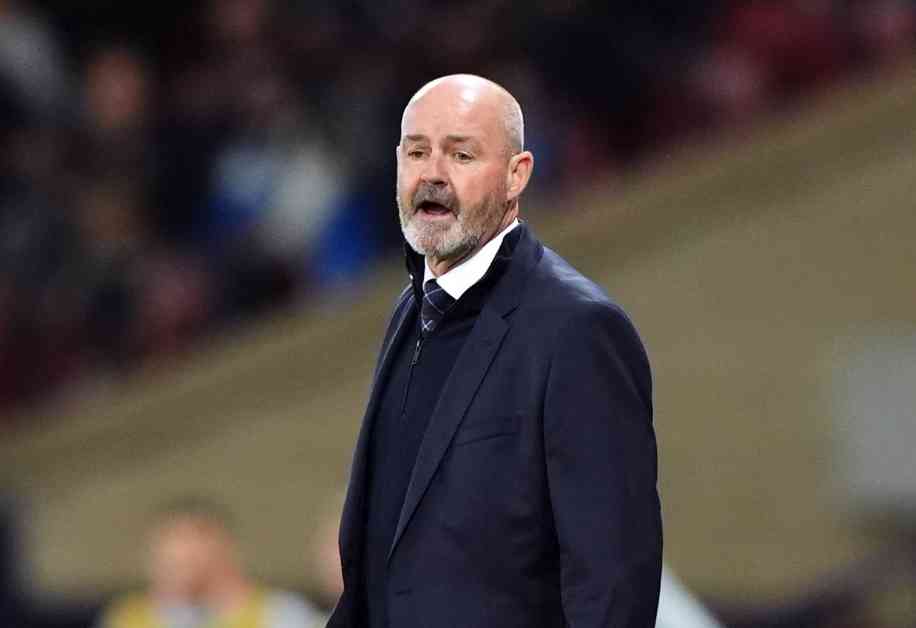Scotland’s Progress: Analyzing Steve Clarke’s Impact and Team Development
Scotland faced a bitter defeat against Portugal on Sunday night, with Cristiano Ronaldo’s late goal sealing their fate. This loss added to Scotland’s recent poor run, extending to just one win in 14 games. However, amidst this disappointing streak, it’s essential to analyze the impact and development of the national team under the guidance of head coach Steve Clarke.
Heroic Defensive Efforts and Costly Errors
The match against Portugal showcased a heroic defensive effort from the Scots, with goalkeeper Angus Gunn making remarkable saves throughout the game. However, amidst Gunn’s brilliance, a crucial error gifted Portugal their equalizer. This pattern of defensive resilience marred by individual mistakes has been a recurring theme for Scotland in recent matches.
In the wider context, Scotland’s progress under Steve Clarke cannot be overlooked. The team has qualified for two European Championships, a significant achievement in itself. Despite the challenges posed by being in Nations League Group A1, Clarke’s tenure has seen notable progress over the past five years. This progress is evident in the team’s improved competitiveness against higher-ranked opponents in recent matches.
Short-Term Successes and Challenges
In the short term, Scotland’s performances against teams like Poland and Portugal indicate their ability to compete at a higher level. While the loss to Poland was frustrating due to individual errors, the team’s overall display was commendable. Similarly, the match against Portugal showed glimpses of Scotland’s potential to challenge strong opponents.
Clarke’s Tactical Decisions and Player Loyalty
Clarke’s tactical decisions, including playing four at the back, demonstrate his willingness to adapt to different situations. However, his loyalty to certain players has been a point of contention among critics. While this loyalty has fostered a strong team spirit, it has also led to criticism regarding player selection and recurring mistakes.
The Euros campaign was a disappointment for Scotland, with defeats to Germany and Hungary highlighting the team’s struggles on the international stage. Clarke’s handling of the aftermath, including controversial remarks and a period of silence, added to the team’s woes. The pressure on Clarke to deliver results intensified as the team prepared for upcoming matches.
Performance Evaluation and Areas for Improvement
Despite the recent defeats, there are signs of encouragement in Scotland’s general play. Injuries to key players like Aaron Hickey and Lewis Ferguson have impacted the team’s performance, but there is potential for improvement with the right adjustments. Clarke’s winless streak of eight matches is a cause for concern, but there is optimism that the team can turn things around with a focus on consistency and execution.
Looking Ahead: Challenges and Opportunities
As Scotland prepares for future matches, they must address key areas of improvement, including defensive solidity and offensive efficiency. Clarke’s strategic approach and player selection will be under scrutiny as the team aims to break their winless streak and regain momentum. The upcoming fixtures will test Scotland’s resilience and determination to compete at a higher level.
In Conclusion
Steve Clarke’s impact on Scotland’s national team cannot be understated, despite recent setbacks. The team’s progress under his guidance has been significant, with notable achievements in qualifying for major tournaments. While challenges remain, there is optimism that Scotland can build on their strengths and address areas for improvement. As the team navigates through a demanding schedule, Clarke’s leadership and tactical acumen will play a crucial role in shaping Scotland’s future success.















